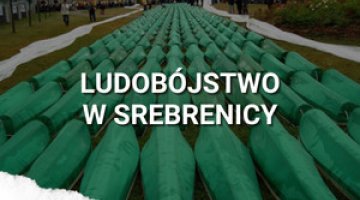Snap presidential election in Republika Srpska: Dodik’s candidate wins
On 23 November, Siniša Karan won the snap presidential election in Republika Srpska (RS; a constituent entity within Bosnia and Herzegovina – BiH). According to preliminary results released by the Central Election Commission, the politician from the Alliance of Independent Social Democrats (SNSD) received 50.3% of the vote. His main rival, Branko Blanuša – the candidate put forward by the Serbian Democratic Party (SDS) and backed by opposition groups – won 48.36%. Turnout was almost 35%, 18 percentage points lower than in the 2022 election. Karan will serve as President of the RS until the general election scheduled for October 2026.
The snap election was held following the removal of Milorad Dodik from office after the judgment of the Court of BiH became final (see ‘The Dodik trial: a test of strength against Serb separatism in Bosnia and Herzegovina’). In addition to a one-year custodial sentence (which, under domestic law, he could have commuted to a financial penalty), the politician was barred from holding public office. In August 2025, the Central Election Commission stripped him of his mandate as President of the RS and announced a snap presidential election in the entity.
Karan’s victory stems from the still-strong position of Dodik himself, who – although he was not formally a candidate – was the main face of the campaign. The SNSD, which has governed for nearly 20 years, maintains its hold on power through, among other means, control of the media and the extensive public sector. The fact that its candidate won by such a narrow margin also indicates a gradual erosion of the party’s dominance, giving the opposition hope of success in the 2026 general election.
Commentary
- Karan’s victory in the presidential election in Republika Srpska is, in effect, a victory for Dodik himself. Although Karan had previously held important posts in the entity (including that of Minister of the Interior), he was not among the SNSD’s most influential politicians. His nomination as the presidential candidate indicates that Dodik’s priority was to put forward a loyal figure whom he could readily control, enabling him to exercise power in RS indirectly. Despite being convicted and formally barred from political activity, the leader of the Bosnian Serbs was actively involved in the campaign, and Karan has announced that his mandate will represent a continuation of Dodik’s policies. Thus, it can be expected that, by exerting control over the newly elected president, the long-standing RS leader will maintain secessionist rhetoric, inflame ethnic tensions, and continue actions targeting civil society.
- Given the extensive clientelist networks and media dominance of the SNSD, it can be said that its candidate won by a very narrow margin. The party has governed RS for nearly 20 years. Its established mechanisms for mobilising and pressuring voters were facilitated by the very short, 14-day campaign. Dodik’s party also benefited from exceptionally low turnout – those who went to the polls in the greatest numbers were voters dependent on the ruling bloc. The Social Democrats were also able to make unrestricted use of RS institutional resources, including the entity’s media, and, according to Transparency International BiH, spent four times as much on the campaign as the main opposition party. The small difference between the candidates therefore reflects growing public dissatisfaction with the SNSD’s long-standing rule, marked above all by corruption scandals and deteriorating economic conditions in the RS. The relatively narrow victory of the ruling camp’s candidate creates an opportunity for the opposition to attempt to take power after the general election in BiH scheduled for next year. The key obstacle, however, remains the strong personal ambitions of the leaders and the mutual animosities between the opposition parties.
- The position of Dodik’s camp was strengthened by the decision of the Donald Trump administration to lift sanctions on the Bosnian Serb leader, his closest aides, and the companies linked to him. Removed from office, he initially threatened to boycott the election. However, faced with the prospect of the United States lifting its restrictions, he agreed to appoint an acting president, hold the election, and withdraw the most controversial laws that undermined Bosnia and Herzegovina’s constitutional order. These institutional concessions, after which the United States removed the sanctions, can widely be regarded as steps aimed at safeguarding the private wealth accumulated by Dodik and his inner circle. This, in turn, may undermine the long-standing RS leader’s image as a defender of the Serb entity’s interests and reinforce perceptions of him as a transactional opportunist.





